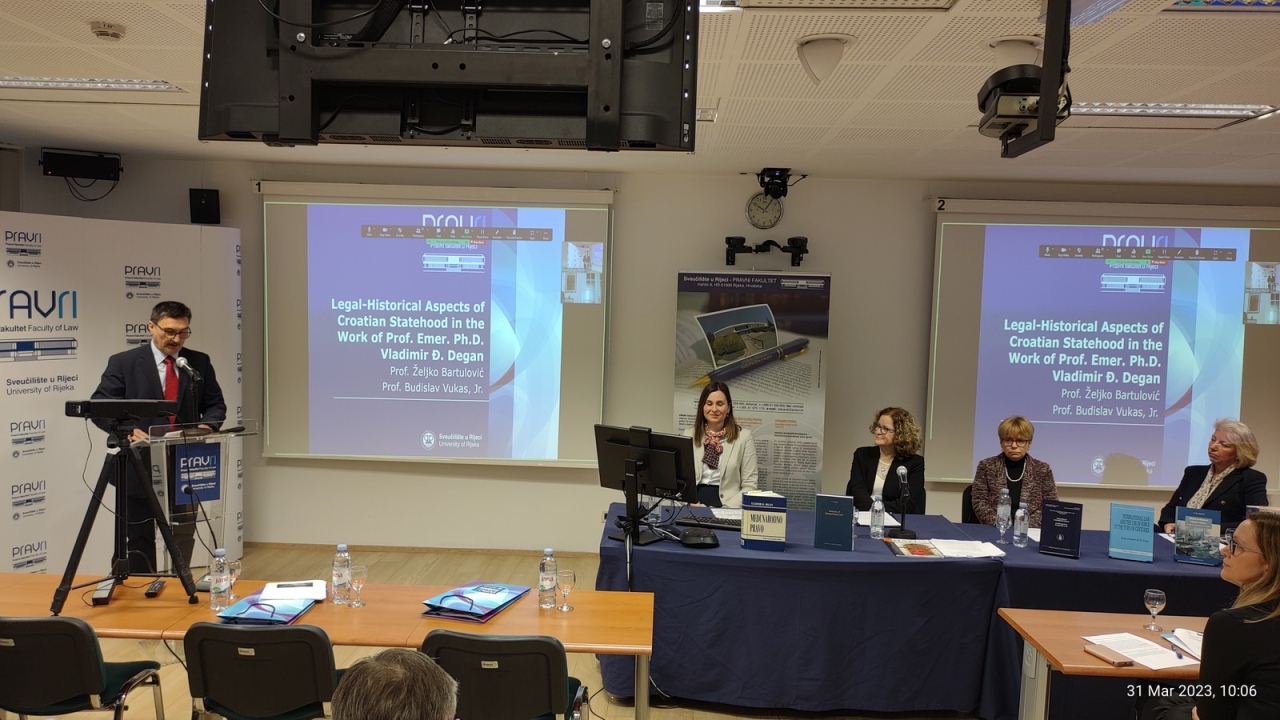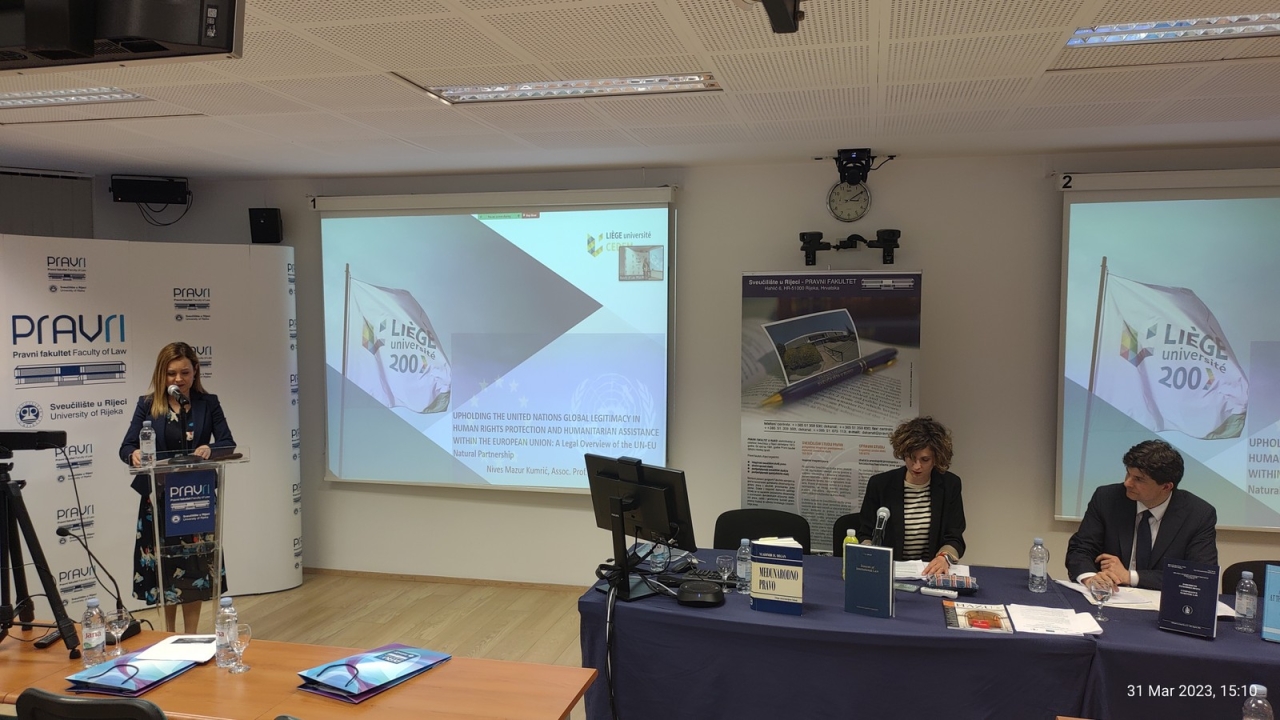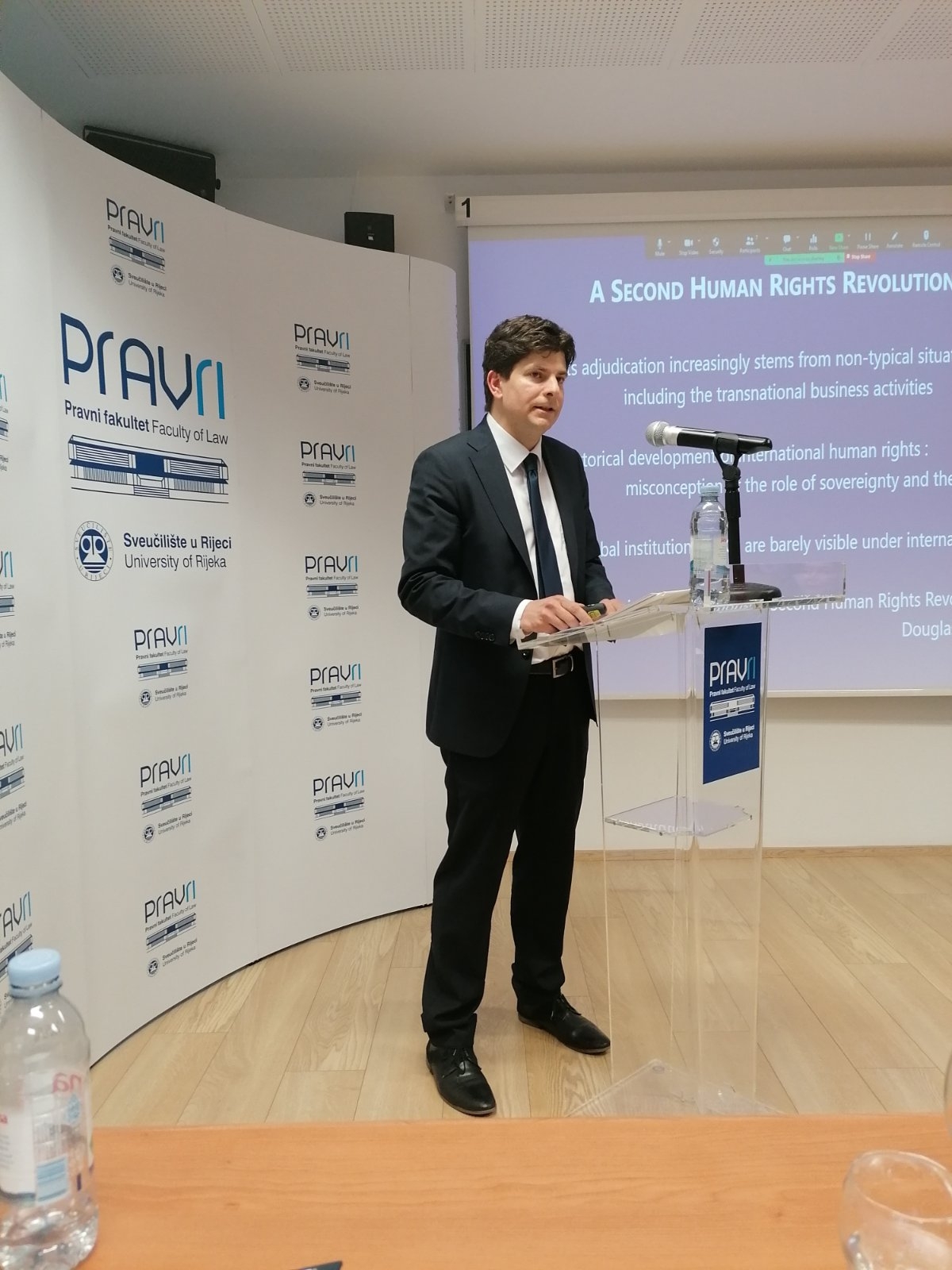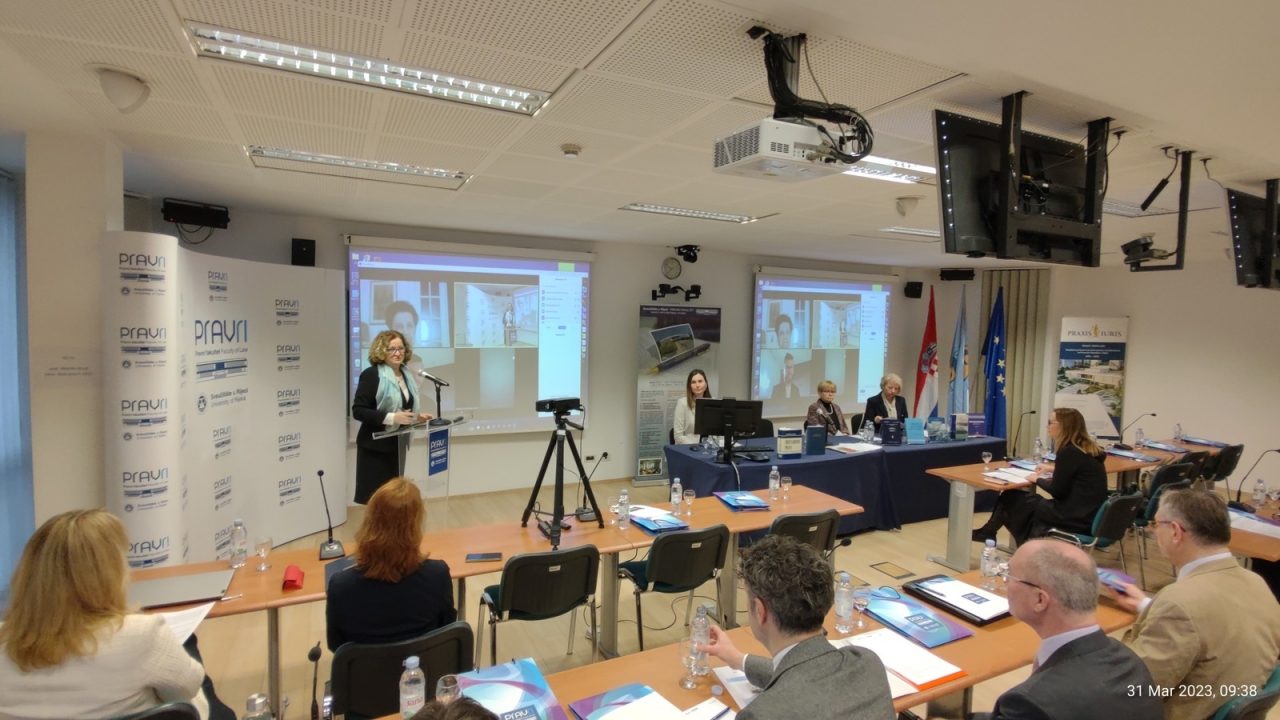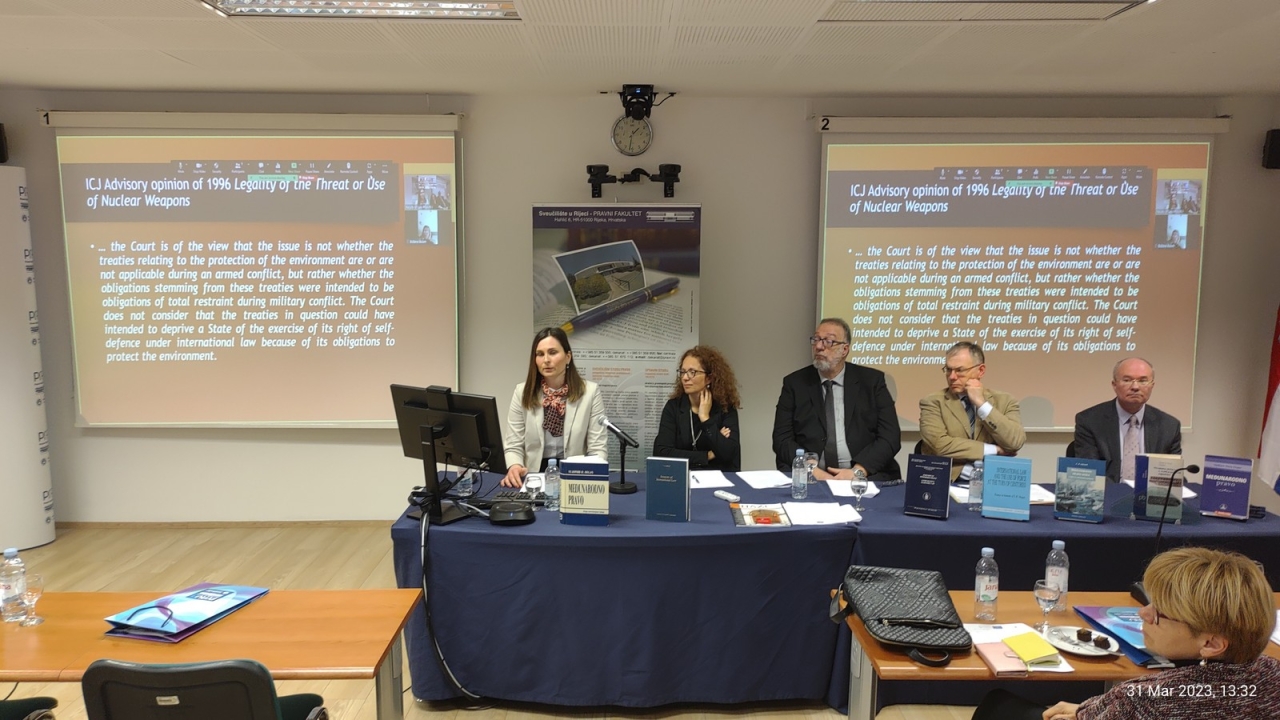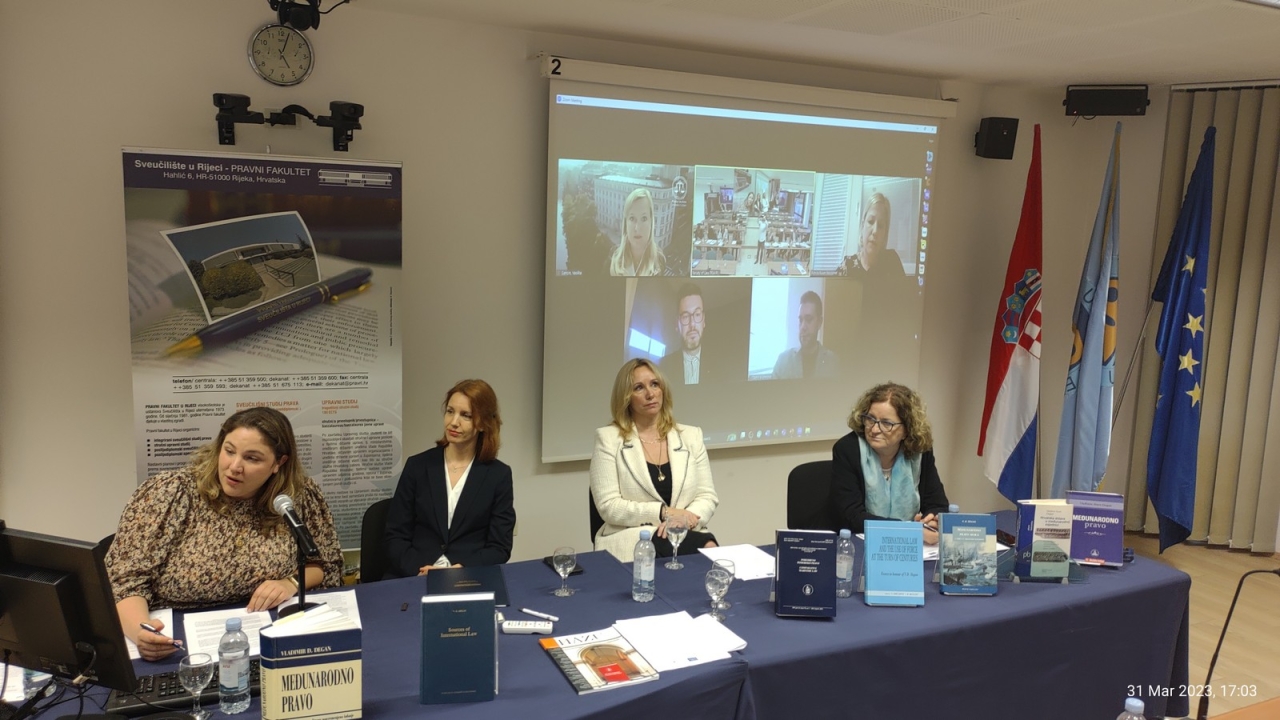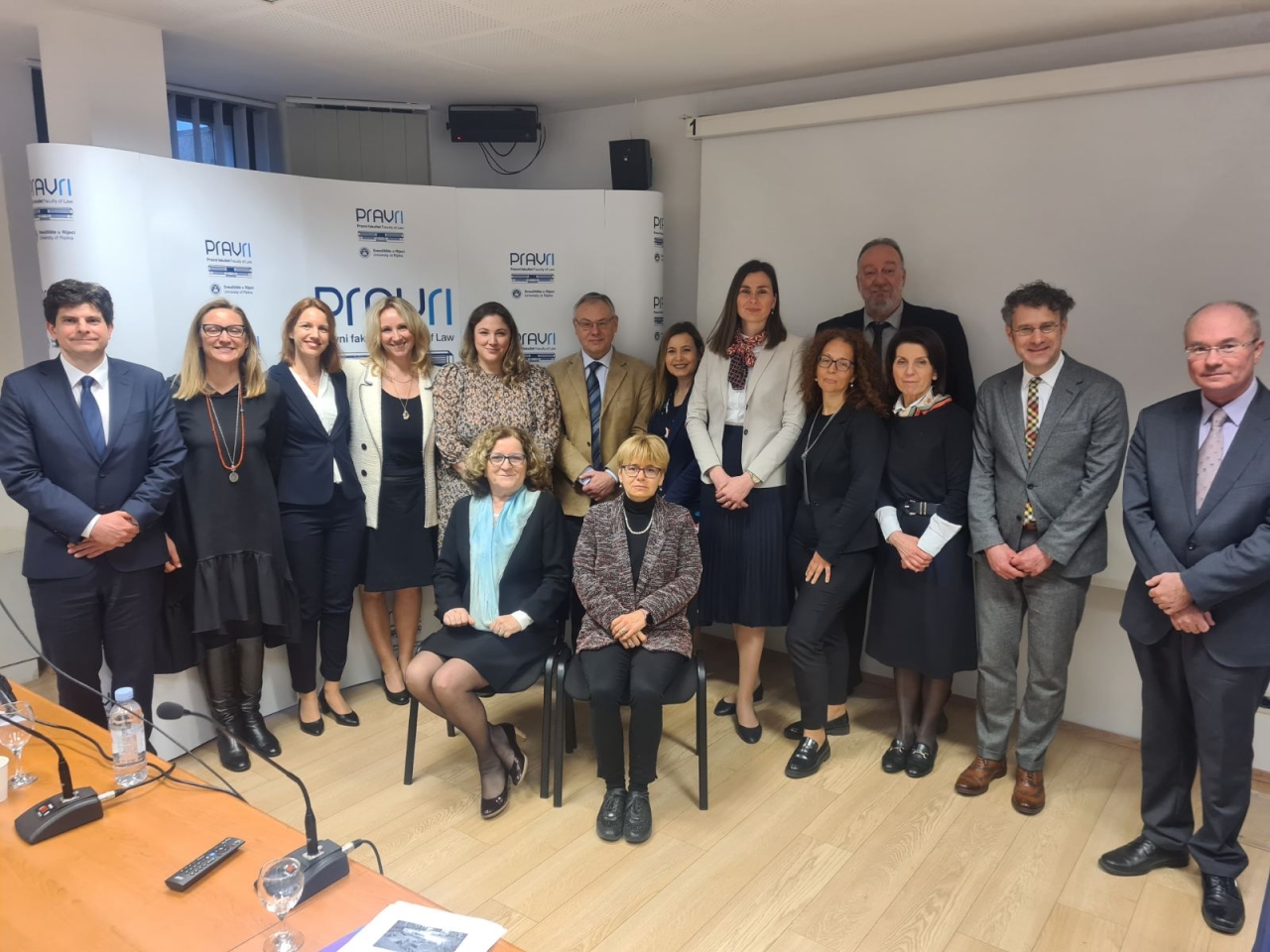Reading time: 3 minutes
The state duty to protect along with smart regulation have a significant role to play in ensuring that local communities can reap the benefits of economic globalization – Lénárd Sándor, Head of the MCC Center for International Law pointed out in his presentation at the international conference organized by the Croatian Academy of Sciences and Arts in memory of Professor Valdimir-Duro Degan.
In memory of the Croatian international law professor Valdimir-Duro Degan, the Croatian Academy of Sciences and Arts (Adriatic Institute), in cooperation with the University of Rijeka, organized an international scientific conference in Rijeka. As stated in the opening speech of the conference, Professor Valdimir-Duro Degan, who passed away last year, made an unparalleled contribution to the theoretical consolidation of the foundations of Croatian statehood. Even though Croatia is a small country, he never felt it that way, and his academic work on maritime law, state responsibility, state succession, human rights, and the rules on the use of force, among others, put the country on the academic world map. At the conference, experts from Croatia, Slovenia, Norway, Hungary, China, Colombia, and other countries shared their ideas in these areas of international law. Exciting issues such as Europe's underwater cultural heritage, changes in maritime zones due to sea level rise, the situation of climate-deterritorialized nations, the legal status of maritime autonomous vehicles in armed conflict as well as the elimination of nuclear weapons were discussed.
Lénárd Sándor, Head of the MCC Center for International Law explored the international legal dimension of economic globalization with a human face. Recalling the common experience of the countries of the Central European region, where the regime change brought about the rapid expansion of transnational business operations, he pointed out that international trade and investment regulation can create important business opportunities but at the same time, they control the sovereign rights of states to impose restrictions on trade and investment at their border and within their economy. The development of international law has not been symmetrical, especially since the 1990s, and there is a widening gap between the scope and impact of economic forces and the capacity of societies and states to manage these forces and their adverse impacts. This has been compounded by the misconception of sovereignty, whereby it is frequently said that states have little or no positive role in protecting rights. His presentation outlined past and current international treaty-making efforts on transnational business operations, their distinctive features, and the difficulties of negotiation.
He highlighted the impact of the consensus-seeking soft law documents and their relations with other sources of international law. He concluded that constitutionalizing international economic regulation, mitigating the fragmentation of international law, and strengthening the state duty to protect offer a vision for an economic globalization that countries and local communities can benefit from.
In addition to the professional part, the international conference also offered the opportunity to outline a plan for a joint summer school on international law on the University’s campus in Rijeka...
